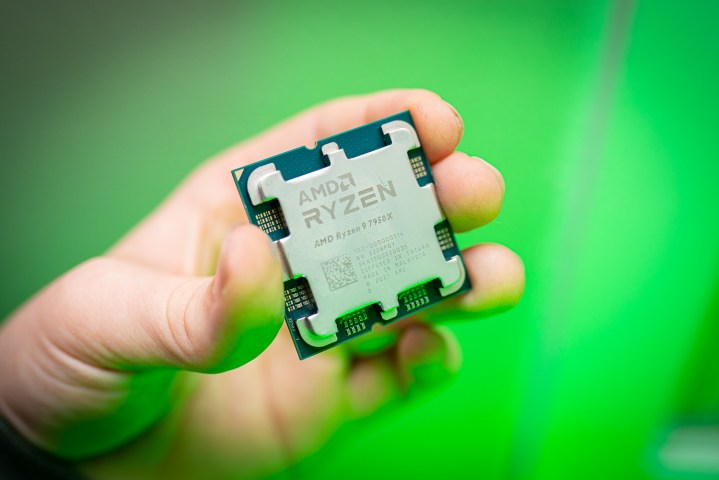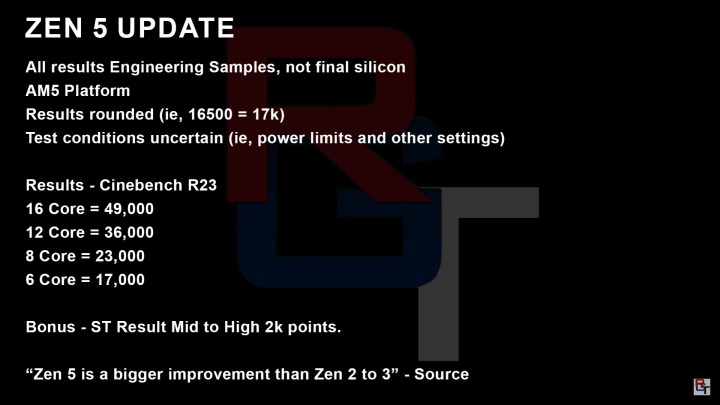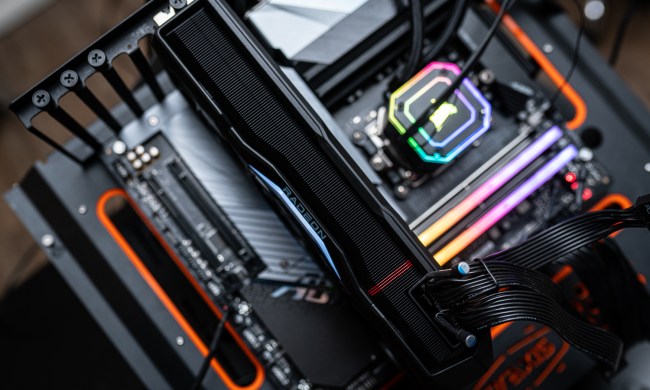
AMD already makes some of the best processors, but it looks like the next generation of Zen CPUs might give us even more to be excited about. According to early benchmarks and estimates, next-gen Zen 5 processors are expected to deliver a huge performance boost, reaching as high as 30%. Even leaving a little room for error, it seems that AMD might be about to deliver its most impressive upgrade in several years.
This thrilling bit of speculation comes from RedGamingTech. While it’s still very early days, the YouTuber was able to provide some rough benchmarks. While he claims these come from a reputable source, it’s a good thing to remember that we’re still a long way off from seeing Zen 5 CPUs in the flesh — most likely a year or more. As such, make sure to not take this information at face value.
With that disclaimer out of the way, these scores really do bode well for AMD’s Ryzen 8000 processors. According to sources cited by RedGamingTech, the 16-core model (which is, presumably, the flagship) will average around 49,000 points in the multi-threaded Cinebench R23 test. Compare that to the roughly 38,000 points achieved by the Ryzen 9 7950X, and we’ve got ourselves a massive performance increase from Zen 4 to Zen 5. Similar scores continue throughout the lineup, with the 12-core CPU reaching 36,000 points, which is slightly above what the Ryzen 9 7950X3D can do right now.

The implication is that Zen 5 would be the largest gen-to-gen boost we’ve seen from AMD since it originally launched its Zen processors. It’s said to be a bigger jump than from Zen 2 to 3, which also means greater gains than Zen 3 to Zen 4. Single-threaded performance shows improvements too, although perhaps not quite as massive as multi-core. Overall, early predictions say that we might see an up to 25% increase in instructions per clock (IPC). This is where all of these performance gains stem from, as on the surface, not much is new for Zen 5.
RedGamingTech said that the frequencies on Zen 5 might not go up too much, with gains around 200MHz at most. The same can be said of core counts, seeing as the top chip is still expected to sport 16 cores at the most. This is a different approach from Intel, which has been increasing core counts with each generation, although it’s hard to say what it will end up doing for Meteor Lake and onward.
While rumors tend to be unreliable, PCGamer points out that we’ve seen similar figures for Zen 5 before, from Tenstorrent’s Jim Keller, who previously oversaw the development of Zen CPUs before moving on to a different role. Keller predicted an overall 30% performance uplift from Zen 4 to Zen 5, and a 23% increase in IPC.
It might be too early to get properly excited, but this bodes well. AMD is already the go-to for gamers based on recent sales figures, and it looks like it might continue to dominate if Zen 5 turns out to be as great as these early benchmarks predict.




